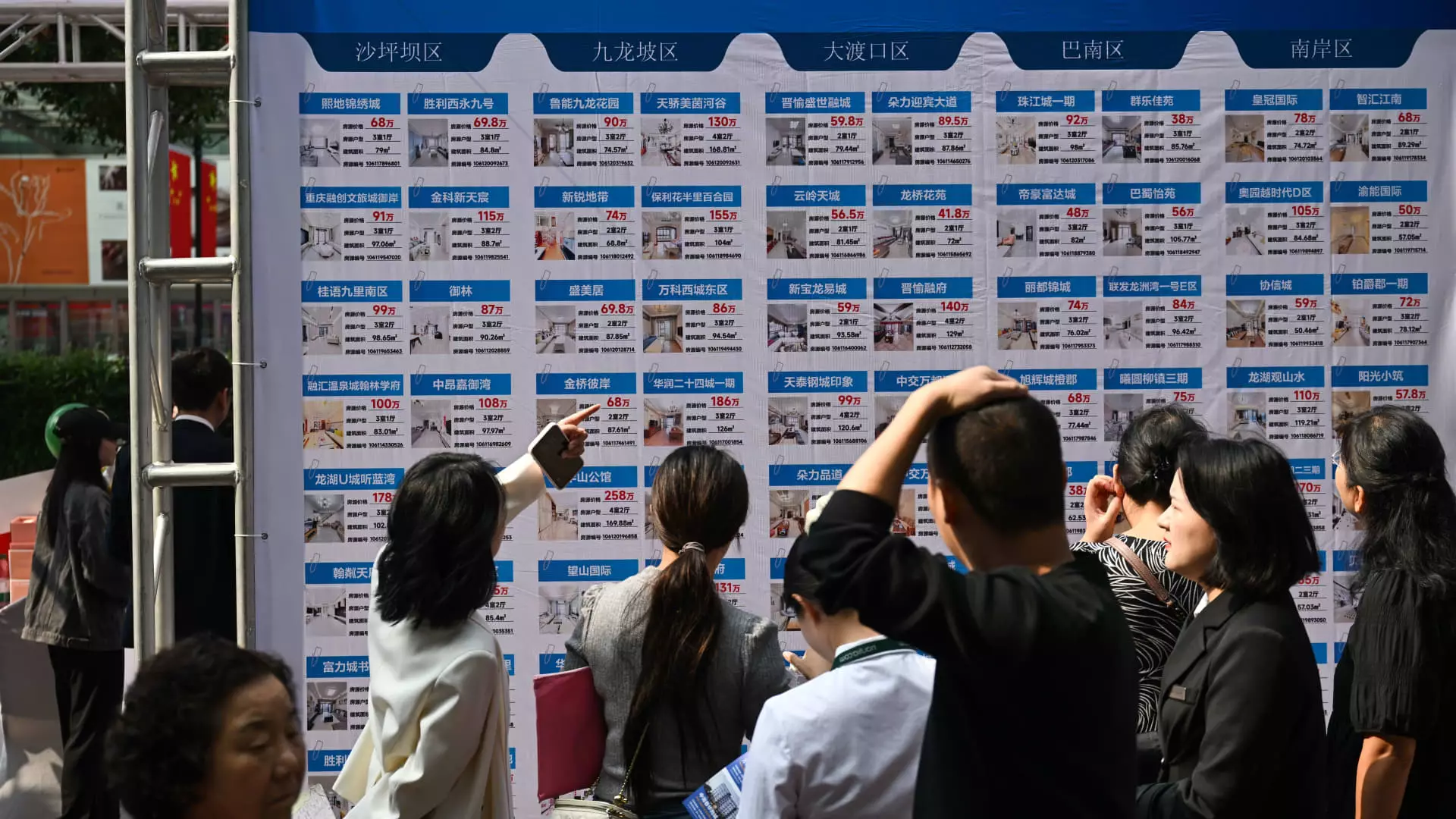As China’s real estate sector remains in the grips of a sluggish recovery, specific firms are taking center stage. One such player is KE Holdings, also known as Beike, which has garnered attention for its unique position within the increasingly volatile property market. The company operates the Lianjia platform—a prominent housing transaction and services gateway for renters across major Chinese cities. As market dynamics shift, the performance of KE Holdings, particularly its U.S. stock under the ticker “BEKE”, offers a window into investor sentiment and the broader prospects of the real estate landscape in China.
KE Holdings, listed both in the U.S. and Hong Kong, recently observed an impressive 38% increase in its U.S.-traded shares in 2024. This surge stands in stark contrast to an index of Chinese property stocks in Hong Kong, which has experienced only marginal gains of around 3% during the same timeframe. According to analytical insights from Jefferies, KE Holdings is expected to capitalize on favorable government initiatives aimed at rejuvenating real estate transactions in 2025. The analysts have bestowed a “buy” recommendation on the stock, projecting a price target of $30—a notable 34% upside from its recent trading close of $22.41.
Amidst policy shifts, such as the recent meeting led by President Xi Jinping and monetary easing measures by the People’s Bank of China, the environment for real estate transactions appears to have improved slightly. Notably, significant cities like Beijing have begun to relax home purchasing restrictions. These developments seem to signal a commitment from the government to stabilize and revive the sector.
Despite the transient positive signals, the broader context remains fraught with challenges. The real estate market in China today tells a tale of transformation—from the dependence on pre-sales of properties to grappling with an excess of existing inventory and an aging population. Richard Tang, head of research for Julius Baer, expressed skepticism regarding the speed of the market’s recovery, emphasizing that investors should remain vigilant and consider reducing their exposure to property-related stocks.
Additional forecasts from Bank of America Securities further amplify this caution, predicting an additional 10% drop in home prices before reaching stabilization. This perspective underscores the persistent uncertainty among homebuyers about future market conditions, which could hinder high transaction volumes despite recent governmental promises to shore up the sector.
Within this challenging environment, KE Holdings stands out due to its considerable influence in brokerage channels for both new and existing homes. As approximately half of the connected stores operate under its platform, the company enjoys a notable market share—a competitive edge that could enhance its resilience. According to a recent Bank of America report, KE’s robust position could allow it to navigate the turbulent waters ahead more effectively than many of its peers.
Conversely, caution abounds, with analysts at Bank of America countering that they maintain a neutral rating on KE Holdings, adjusting their price target upwards to $24 in light of the ongoing uncertainties regarding sustainable growth prospects. This mixed sentiment underscores the complexities of the current real estate climate and the need for strategic adaptability from market players.
A potential catalyst for growth for KE Holdings may be the ongoing adjustments in Hong Kong’s stock market regulations, which could facilitate greater mainland interest in the company’s shares. Analysts at Goldman Sachs project that such developments could further augment KE’s growth trajectory, especially in key tier-1 cities, which represent a significant portion of its existing home transaction volume.
With the company possessing a substantial net cash reserve of $10.5 billion as of June 2024 and a commitment to returning 6-7% to shareholders via buybacks and dividends, the sentiment around KE Holdings leans positively. Goldman Sachs maintains a “buy” recommendation with an intriguing valuation against historical benchmarks.
While KE Holdings is poised to leverage existing market channels and government support to its advantage, it is crucial to be cognizant of the underlying challenges facing the Chinese property market at large. Investors must balance the promising outlook with prudent caution, remaining aware of the potential for further market fluctuations. As KE Holdings navigates this complex landscape, its adaptability, combined with strategic government support, may ultimately determine its long-term success in an evolving real estate ecosystem.

